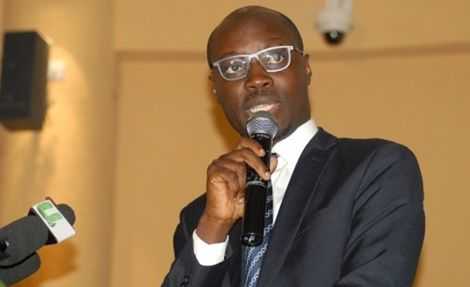The Minority in Parliament has said Ghanaians may experience severe hardship in 2018 akin to that which occurred in 1983, if government continues with the current path it has taken in its management of the economy.
Speaking at a round-table discussion to assess the economy ahead of the 2017 budget statement to be delivered on Wednesday, Minority Spokesperson on Finance, Cassiel Ato Forson, said figures from the International Monetary Fund (IMF), points to this fact, and might come to pass if nothing is done to forestall it.
“How can you create jobs under severe austerity under fiscal consolidation? The budget deficit in IMF article 4 is projected to be 3.8, so ladies and gentlemen, next year, let us be assured that there will be severe austerity equivalent to 1983. How can you create jobs when you have mandated the central bank to pursue tight monetary policy? How can you create jobs when the real sector, the non-oil GDP, is projected to grow in 2018 almost at the same level as 2016?”
“We believe that unfortunately, government’s economic policy for 2018 will bring about severe hardship and Ghanaians must be well informed,” he added.
The Minister of Finance, Ken Ofori-Atta, is expected to present to Parliament the 2018 budget on Wednesday.
President Nana Addo Dankwa Akufo-Addo, had revealed that the 2018 budget statement and fiscal policy will focus largely on job creation and also announce a downward review of electricity tariffs.
But even before the budget is read, the Minority has warned against any “419” budget, and further chastised government’s management of the economy citing the country’s rising public debt stock as a situation that can take Ghana back to HIPC [heavily indebted poor countries] by the end of 2019.
Cassiel Ato Forson, also said contrary to what the governing New Patriotic Party (NPP) promised Ghanaians while in opposition, they have done virtually nothing to keep to their promise of holding the country’s debt stock in check.
“When the Energy Bond and the UT/Capital Bank bond is added, the Debt-to-GDP will rise to 76.8 percent from 72.5 [inherited from the previous government]. Ghana is heading towards HIPC. Ladies and gentlemen don’t be surprised if, by the end of 2019, we are declared HIPC,” Ato Forson who is also the Member of Parliament for the Ajumako-Enyan-Esiam constituency added.
Ato Forson further warned the government to desist from its intention to tax mobile money transactions as it would hit the country’s many poor folks the hardest.
“Ghanaians expect a reduction in the corporate income tax rate from 25 percent to 20% to be included in the 2018 budget statement. It is our expectation that government will follow through with the firm promise that they made and we hope that we are not going to see another 419 budget,” the Minority spokesperson on Finance added.
About ‘83 famine in Ghana
Ghana experienced severe famine especially in 1983 resulting from a combination of events – natural, human and political—which occurred over a two-year period.
The famine which began in 1982 continued until the end of 1983.
In its 1983 Budget, the PNDC moved Ghana away from Kwame Nkrumah’s socialist economic philosophy towards Busia and Danquah’s capitalist free market philosophy that the government railed so much against at its inception.
The PNDC proceeded to implement an IMF supported Structural Adjustment Programme (SAP). A major plank of the SAP was the rehabilitation and provision of physical infrastructure to help improve productivity.
The economy responded positively and output increased. GDP growth, which was negative and declining in the three years before the SAP, recorded a remarkable recovery to register an average of some 5.0 percent per annum between 1984 and 1991.
Macroeconomic stability was also restored between 1984 and 1991 and the stability was not attained at the expense of growth. Inflation declined from some 122 percent in 1983 to 10.0 percent by 1991 reflecting fiscal discipline.
Source: citinews



